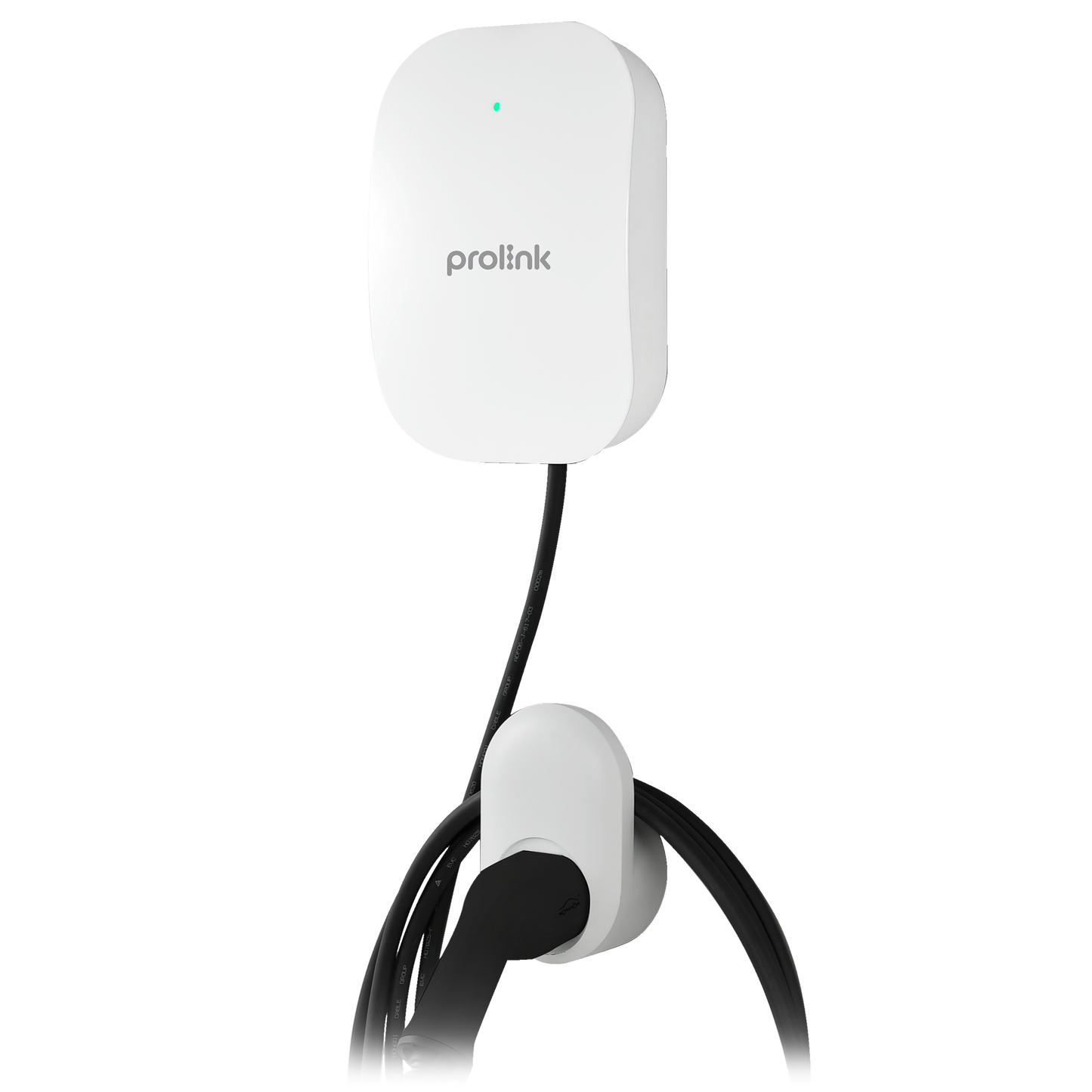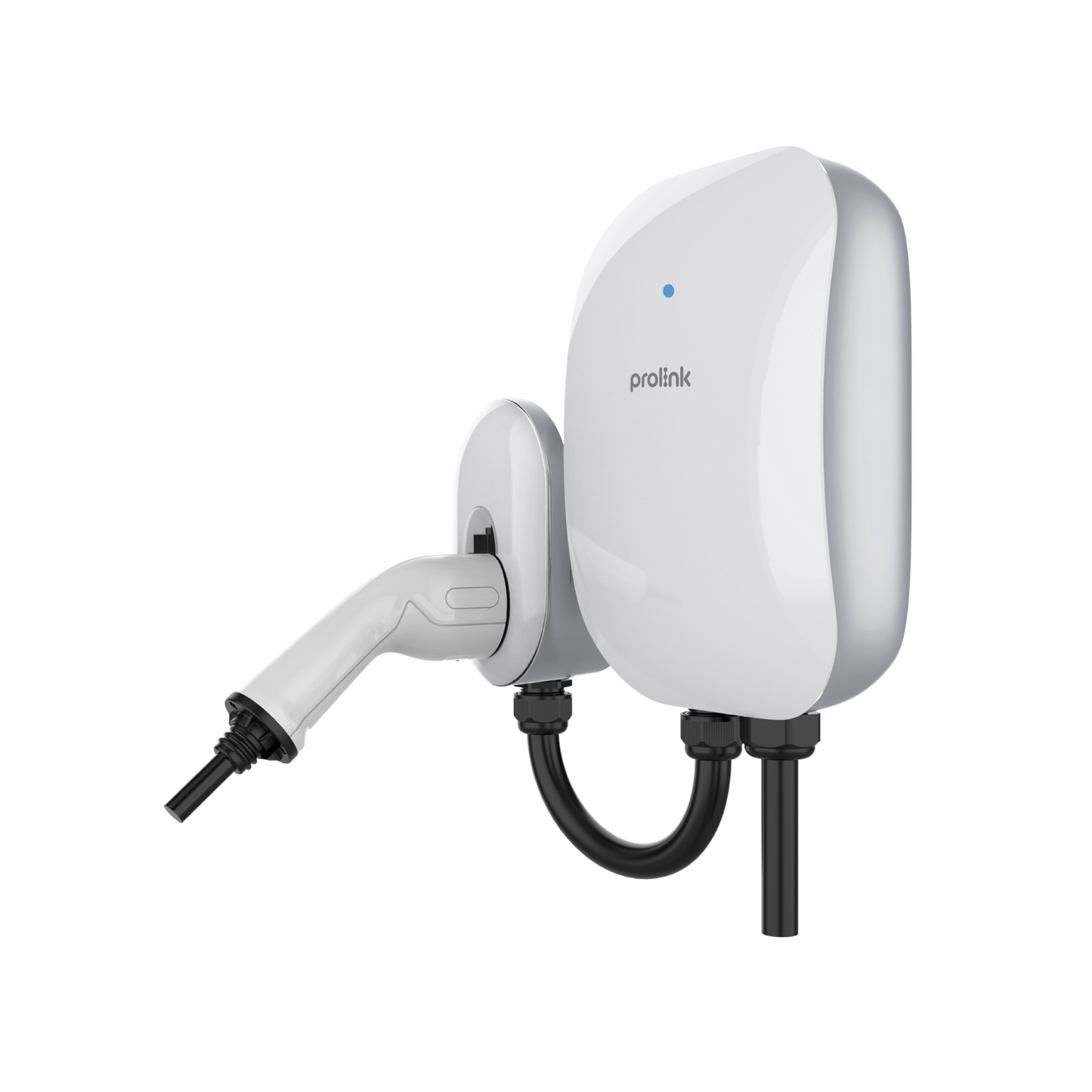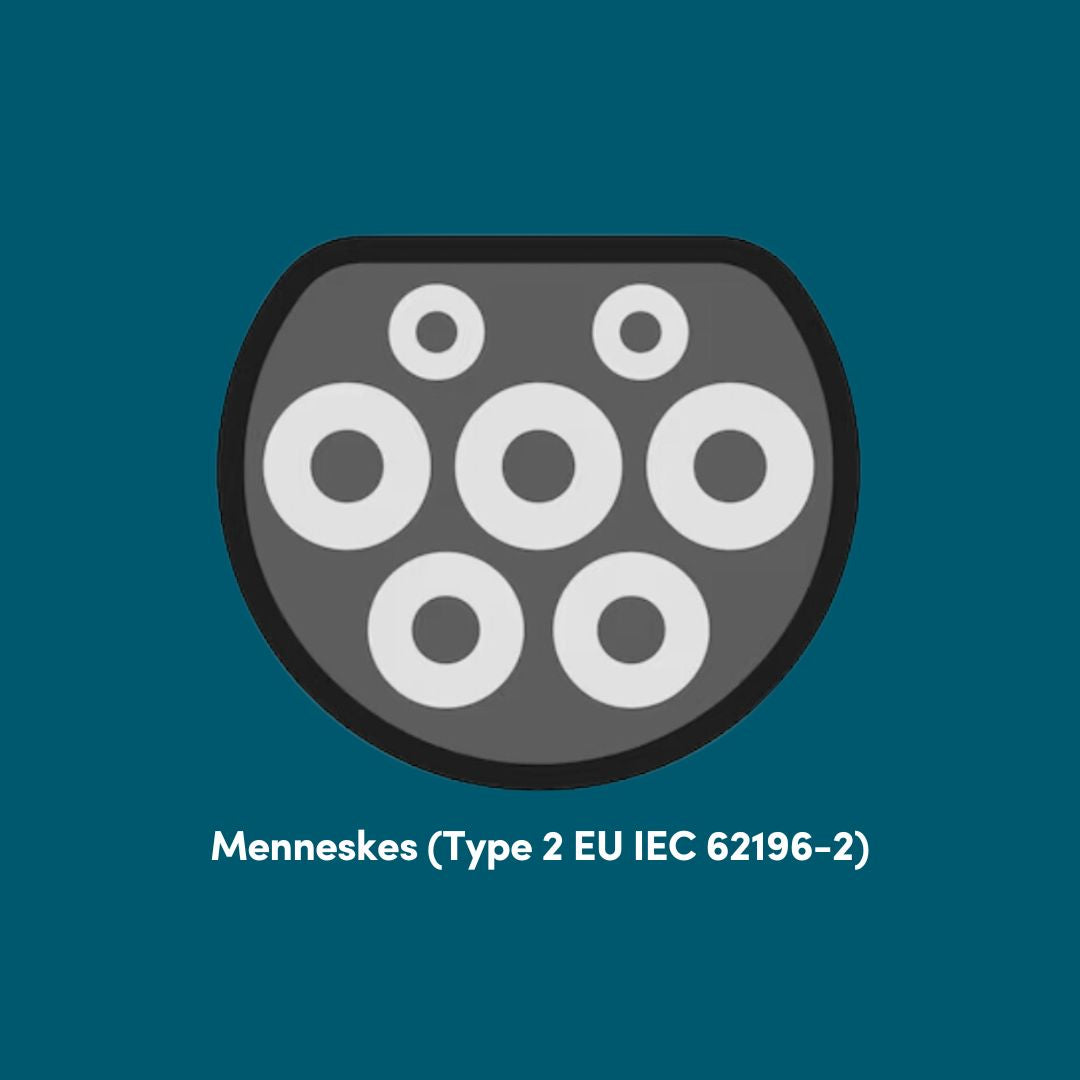Wall Mounting Type AC EV Charger - 7KW to 23KW
Wall Mounting Type AC EV Charger - 7KW to 23KW
32A Single phase
16A Three phase
32A Three phase


At a glance
EU Type 2 Connector (IEC 62196-2)
Charging Mode 3
Mobile App Control & Monitoring
LED Indicator
Low Cost of Maintenance

Single-phase AC 220 - 240VAC
Three-phase AC 380 -415VAC

IP65 rated casing

Mobile app
System protection
Built to withstand any weather.
The wall-mounted EV charger is designed for outdoor usage and is made from durable and robust materials - with lP65 patented design and IK10 (cabinet) vandal-proof enclosure.
Easy to install wall-mounted EV charger that provide users with a safe, efficient, and reliable charging experience.

Menneskes (Type 2 EU IEC 62196-2)
The Type-2 connector is widely used in European EV models (i.e., Audi, BMW, Renault, Mercedes, VW, and Volvo) and is becoming increasingly common globally, making it compatible with a wide range of electric vehicles (EVs).
You can connect all vehicles with a Type-2 play to public charging stations easily with the Mennekes charging connector. Depending on the variant, you can also power up to 23kW (3 Phase 415V, 32A) in public charging areas, or even private households.
__
Read more about connector types here.
Single-phase AC 220 - 240VAC / Three-phase AC 380 -415VAC
Choose either the Single-phase AC 220 - 240VAC or Three-phase AC 380 -415VAC working voltage to suit the type of AC power supply source available in your homes and your car brand/model's type of on-board charger.
LED Lights Indicator
The LED indicator light allows you to monitor the 4 operating status:
1) Charger Powered ON, 2) Charger Connected to Vehicle, 3) Charging in Progress, and 4) Charger Faulty.
ICharging Mobile App
Remote controlling
Monitor the charging status and progress, set and track charging current and sessions, or switch on/off your charger anytime, anywhere.
Smart scheduling
Customize your charging sessions to suit your day-to-day lifestyle.
Long-term savings
Save money by scheduling your charging sessions when energy is cheapest.
Certification Standards
EV Chargers FAQs
Is EV Charging Safe?
Yes! All EV Chargers (especially in Singapore) are complied with stringent safety precautions such as TR25, which includes regular preventive maintenance.
All Prolink EV Chargers are equipped with various level of safety protection, as well as an emergency stop button. The chargers are also certified for protection level ratings (IP55, IP54, IK10), making them suitable for usage even in wet weather situations.
Where can EV Chargers be installed?
EV chargers can be installed almost anywhere, from private houses, office buildings, shopping malls, hotels, lifestyle destinations, universities and tourist attractions, to public and private residential car parks and fleet owners’ premises.
Do I need a dedicated circuit for EV charger?
Yes, it is recommended to have a dedicated circuit for an electric vehicle (EV) charger to ensure that the charger has a consistent and stable power supply.
This will also prevent overloading of the circuit, which can lead to power outages or damage to the charger.
However, it is important to note that the specific requirements for EV charger installation may vary depending on the type of charger, the location of the charger, and the local building codes and regulations.
It’s recommended to consult with a certified EV charger installer for guidance on the specific requirements for your situation.
How quickly can your chargers charge an EV?
The speed of charging generally depends on some main factors:
- EV battery capacity: EVs with larger battery capacity (measured in kWh), will require a longer charge duration compared to EVs with smaller battery capacities.
- State of charge of EV battery: If you are charging your EV from a lower state of charge, say 20%, it will take longer to reach a full charge than if you are topping up from 50%.
- EV charger type and rating: The charging duration is affected by the charger type output power of the charger you are using. AC EV chargers take longer time to charge and DC EV chargers (fast-charger) take much shorter time to charge.
- Environmental factors: A lower ambient temperature may increase the charging duration, particularly when using a rapid charger.
Is it worth installing EV Charger at home?
Installing an EV charger at home can be a great investment for electric vehicle (EV) owners.
It offers the convenience of charging your vehicle at your own home, eliminates the need to rely on public charging stations and can save you money on charging costs.
In addition, having an EV charger installed at your home can also increase the value of your property.
Check out the full FAQs here.
Product
73mm (D) x 190mm (W) x 270mm (H)
Product
PEV III 6507W-AP: 2.9Kg
PEV III 6511W-AP: 3.1Kg
PEV III 6521W-AP: 4.2Kg
Kindly email support@prolink2u.com for more information.
Kindly email support@prolink2u.com for more information.
Quick Compare
PEV III 6507W-AP
Wall Mounting Type AC EV Charger - 7KW to 23KW
32A Single phase
16A Three phase
32A Three phase
PEV6507W-AP
Wall Mounting Type AC EV Charger - 7KW to 21KW
32A Single phase
16A Three phase
32A Three phase






